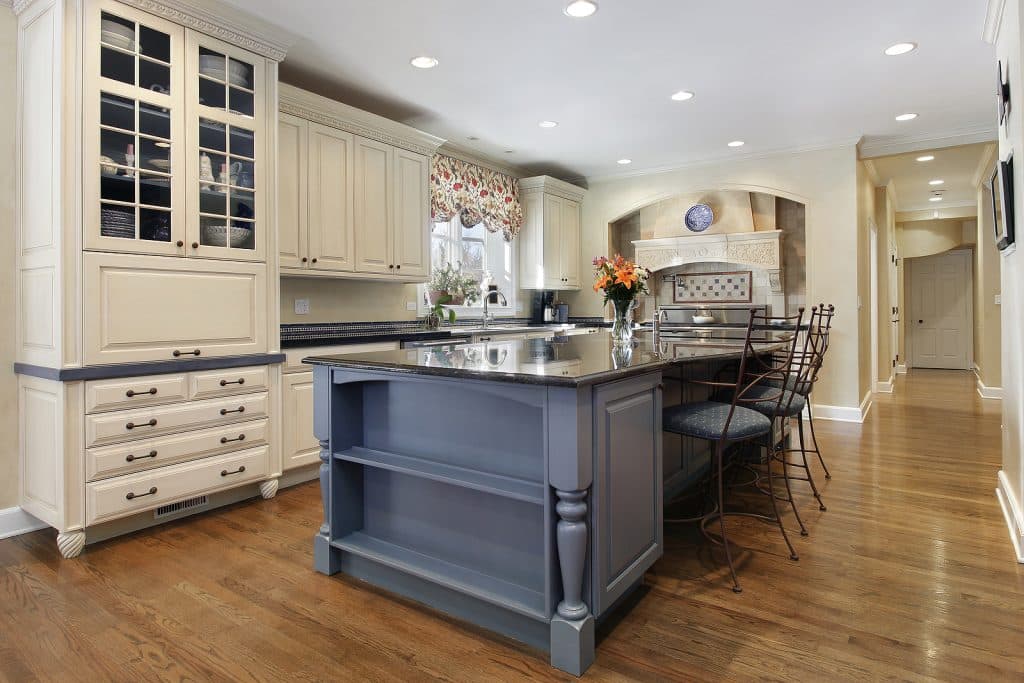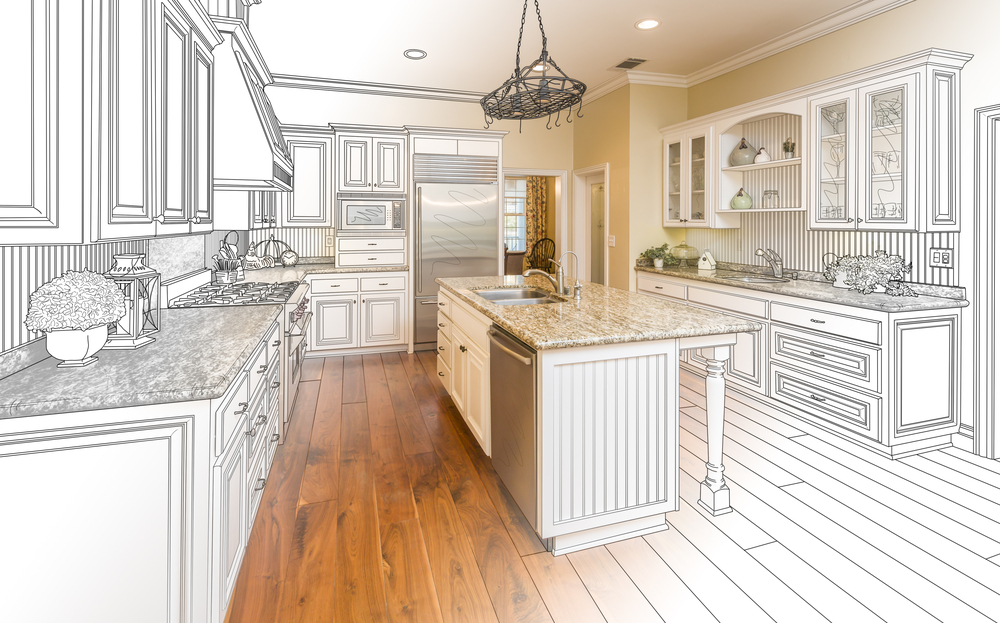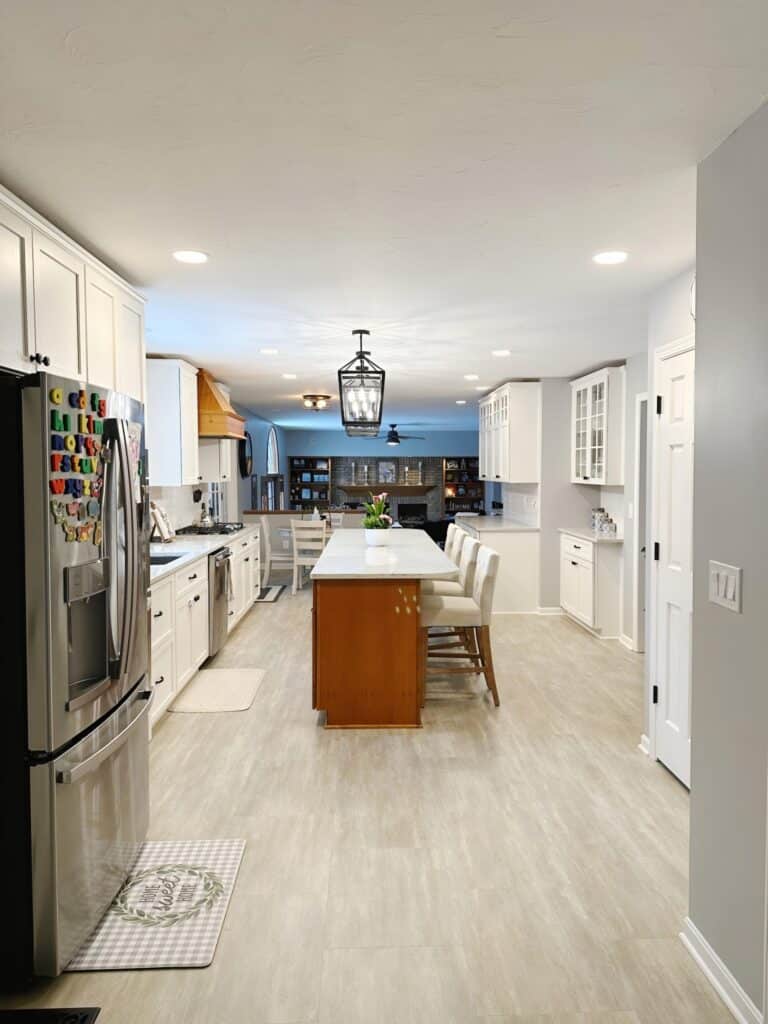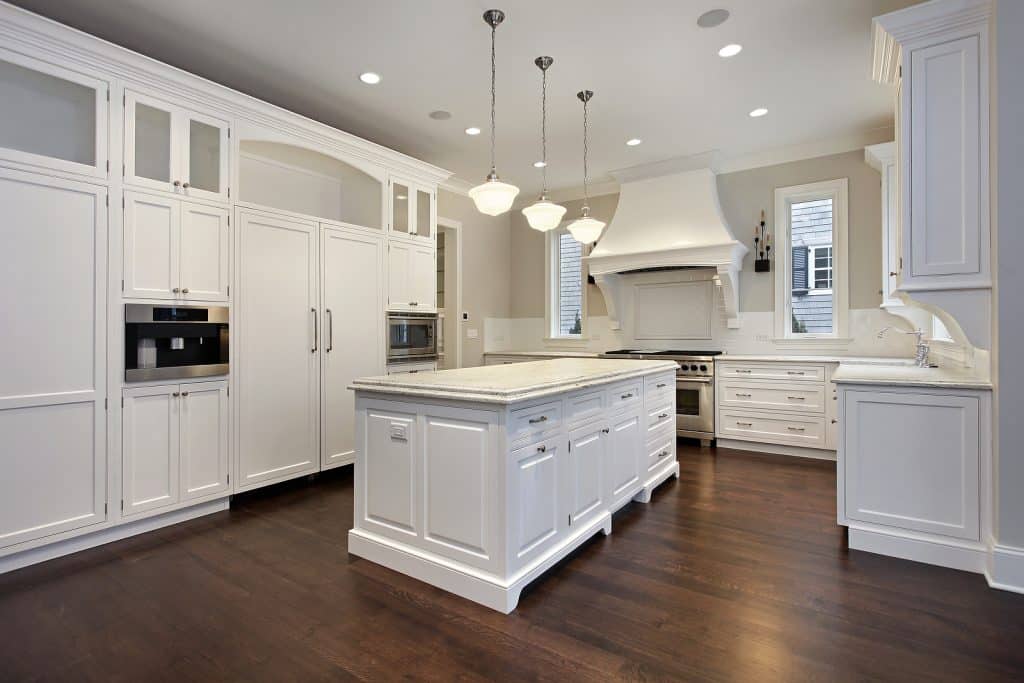Can You Provide Your Own Materials for an Interior Remodel? Pros and Cons
You’ve been scrolling through Pinterest, found the perfect vanity on sale, and spotted an amazing deal on tile at a local surplus store. Naturally, you’re wondering: can I just buy these materials myself and have my contractor install them?
Short answer: maybe. But it’s more complicated than you think.
After 35 years in the design-build remodeling business, we’ve seen every variation of this scenario. Sometimes it works beautifully. More often, it creates problems that cost more time and money than the homeowner saved.
Let’s break down when providing your own materials makes sense, when it doesn’t, and what you need to know before going down this path.
Why Most Design-Build Contractors Supply Materials
Here’s something important to understand: when you hire a design-build remodeling company, you’re not just hiring installation labor. You’re hiring expertise, coordination, accountability, and warranty protection.
About 90% of our projects involve us supplying all the materials. That’s not because we’re trying to control everything or maximize profit margins. It’s because this approach protects you and keeps your project on track.
Here’s why:
Quality Control We’ve built relationships with suppliers who provide professional-grade materials that meet our standards. That “deal” you found online might look identical to what we’d use, but the quality can be dramatically different. We’ve seen beautiful vanities that looked great in photos arrive with cheap hardware that breaks within months, or tile that chips easily because it’s not rated for the application.
Correct Specifications A shower valve isn’t just a shower valve. There are rough-in depths, pressure ratings, compatibility with trim kits, and code requirements. We know exactly what’s needed for your specific situation. Homeowners often buy materials that look right but have subtle specification differences that create problems during installation.
Warranty Protection When we supply materials, we warranty everything – both the product and the installation. If something goes wrong, you make one phone call and we handle it. When you supply materials, the warranty situation gets murky fast. Is the problem with the product or the installation? Now you’re dealing with two separate parties who might point fingers at each other.
Timeline Management Construction schedules are tight. When the tile setter shows up, the tile needs to be there. When we supply materials, we control delivery timing and have backup plans if something goes wrong. When homeowners supply materials, delays are common and they cascade through the entire project schedule.
Professional Pricing Here’s something most homeowners don’t realize: we often get materials for less than you’d pay retail, even with our markup included. Our volume purchasing relationships and trade accounts give us pricing that isn’t available to the general public.
When Providing Your Own Materials Can Work
That said, there are situations where homeowner-supplied materials make sense.
Standard, Readily Available Items A straightforward bathroom vanity from a major retailer? That can work. We’re talking about something standard-sized, in stock, from a reputable brand. You save a little money, and the risk is minimal because these items are designed to be plug-and-play.
Accessories and Finishing Touches Mirrors, hardware, decorative elements – these are the easiest items for homeowners to provide. They’re not structural, they’re not complex to install, and personal preference really matters.
For example, many homeowners want a specific mirror that reflects their style. We’re happy to coordinate the dimensions and timing so you can provide that piece while we handle the functional components of the bathroom.
Paint (With Realistic Expectations) Painting is the most common item homeowners want to handle themselves to save money. And yes, it’ll save you several thousand dollars on a larger project.
But let’s be honest about what you’re taking on: Painting a freshly renovated space is a bigger job than most people anticipate. It’s not just rolling some color on the walls. It’s:
- Protecting all your new fixtures, cabinets, and countertops
- Proper prep work including sanding, priming, and filling
- Cutting in around all the new trim and cabinetry
- Multiple coats with proper drying time between
- Cleanup and touch-ups
A professional painter will do this faster and with a cleaner finish than most homeowners. But if you’re willing to invest the time and effort, and you understand it won’t look quite as crisp as professional work, painting yourself is doable.
Just know that your project completion date gets pushed back until you finish painting. And if you discover mid-painting that it’s more work than expected, bringing in a professional painter at that point often costs more than if we’d included it from the start.
When Providing Materials Creates Problems
Here are the scenarios where homeowner-supplied materials typically backfire:
Complex or Custom Items Shower systems, tile with specific installation requirements, custom cabinetry – these need professional sourcing. The risk of getting something wrong is too high, and the consequences too expensive.
Items That Require Precise Measurements Countertops are the classic example. We need to template after cabinets are installed, then fabricate to exact specifications. This isn’t something you can order online and have show up ready to install.
Materials With Long Lead Times If you order that special tile and it takes 12 weeks to arrive instead of the promised 8, your entire project sits idle. When we order materials, we build realistic lead times into the schedule and have backup options if suppliers miss deadlines.
Bulk Materials Trying to save money by sourcing your own lumber, drywall, or rough materials rarely works. You don’t have access to contractor pricing, you probably don’t know exact quantities needed (which leads to waste or shortages), and delivery logistics become complicated.
The Hidden Costs Nobody Talks About
Even when providing materials seems like it’ll save money, hidden costs often eat up those savings:
Your Time Researching products, comparing prices, coordinating delivery, being home to receive shipments, dealing with returns, this takes dozens of hours for a typical project. What’s your time worth?
Storage Materials arrive before they’re needed. Where are you putting 500 square feet of tile for three weeks? How are you protecting it from damage?
Damaged or Wrong Items When materials arrive damaged or incorrect, you deal with the return process, the reorder, and the project delay. When we supply materials, that’s our problem, not yours.
Split Responsibility If something goes wrong, who’s responsible? If tile cracks during installation, is it because you bought cheap tile or because the installer made a mistake? This ambiguity creates conflict and delays resolution.
No Bulk Discounts For many materials, buying the exact quantity needed is impossible. You’ll end up with waste you paid for, or you’ll run short and need a second trip (with different dye lots that don’t match perfectly).
How We Handle It When Homeowners Want to Supply Materials
When clients ask about providing materials, we have an honest conversation about which items make sense and which don’t.
Items We’re Usually Fine With:
- Standard bathroom vanities from major retailers
- Mirrors and decorative accessories
- Paint (with clear expectations about timeline impact)
- Specific fixtures they’ve fallen in love with (as long as they meet specs)
Items We Prefer to Supply:
- Tile, flooring, and other surface materials
- Cabinets and countertops
- Plumbing fixtures and rough-in materials
- Electrical components
- Any structural or waterproofing materials
What We Need From You: If you’re providing materials, we need:
- Product specifications and model numbers for approval before purchase
- Clear delivery dates that work with our schedule
- Someone home to receive and inspect deliveries
- Acknowledgment that material-related delays affect the project timeline
- Understanding that we can’t warranty products we didn’t supply
We’ll help you with dimensions, timing, and technical requirements to make sure what you order actually works for your project.
The Warranty Issue
This is critical: when we supply materials, everything is covered under our warranty. Product defects, installation issues, compatibility problems – we own it all and fix it at no cost to you.
When you supply materials, the warranty gets complicated:
- The manufacturer warranties the product (maybe)
- We warranty our installation (but not material defects)
- If something fails, determining cause becomes a finger-pointing exercise
Let’s say your homeowner-supplied shower valve starts leaking two years after installation. Is it a defective valve? Improper installation? We’ll need to diagnose before we know who’s responsible. Even if it’s a product defect, you’re dealing with the manufacturer’s warranty process, not just calling us to fix it.
This split responsibility creates headaches that the small savings rarely justify.
Questions to Ask Yourself
Before deciding to provide materials, honestly answer these questions:
- Do I have the expertise to select the right specifications? Not just style – actual technical requirements for the application.
- Am I prepared to be responsible for delivery timing? Can you guarantee materials arrive when needed, or are you okay with project delays?
- What happens if materials arrive damaged or wrong? Are you willing to handle returns and reorders while construction sits idle?
- Is the savings worth the complexity? After accounting for your time, potential delays, and warranty complications, are you actually saving meaningful money?
- Do I understand how this affects the warranty? Are you comfortable with split responsibility if something goes wrong?
Our Recommendation
For most homeowners, the cleanest approach is letting your design-build contractor handle materials. You get:
- Professional expertise in product selection
- Coordinated delivery and installation
- Complete warranty coverage
- One point of accountability
- Predictable timeline
- Peace of mind
The money you might save by sourcing materials yourself often gets eaten by delays, problems, and your own time investment.
That said, there’s nothing wrong with providing accessories, standard fixtures you’ve found on sale, or handling your own painting if you’re prepared for the work involved.
The Bottom Line
Can you provide your own materials? Sometimes. Should you? That depends on what materials, your tolerance for complexity, and how much you value simplicity and warranty protection.
The homeowners who are happiest with their projects are usually the ones who let professionals handle what professionals do best, and focus their own energy on making design decisions rather than playing general contractor.
We’re not trying to control every detail of your project. We’re trying to deliver results you’ll love without the headaches that come from split responsibility and coordination nightmares.
If you’ve found something you really want to provide yourself, talk to your contractor early in the process. An honest conversation about feasibility, timing, and implications will save everyone frustration later.
Your renovation should be exciting, not stressful. The simpler you keep the logistics, the more likely you’ll actually enjoy the process.
Ready to start your remodeling project without the headaches of coordinating materials yourself? Medina Exteriors and Remodeling is a full-service design-build company that handles everything from design to final installation, with complete warranty protection on materials and workmanship. Contact us today for a free consultation and let us show you how smooth a renovation can be.






